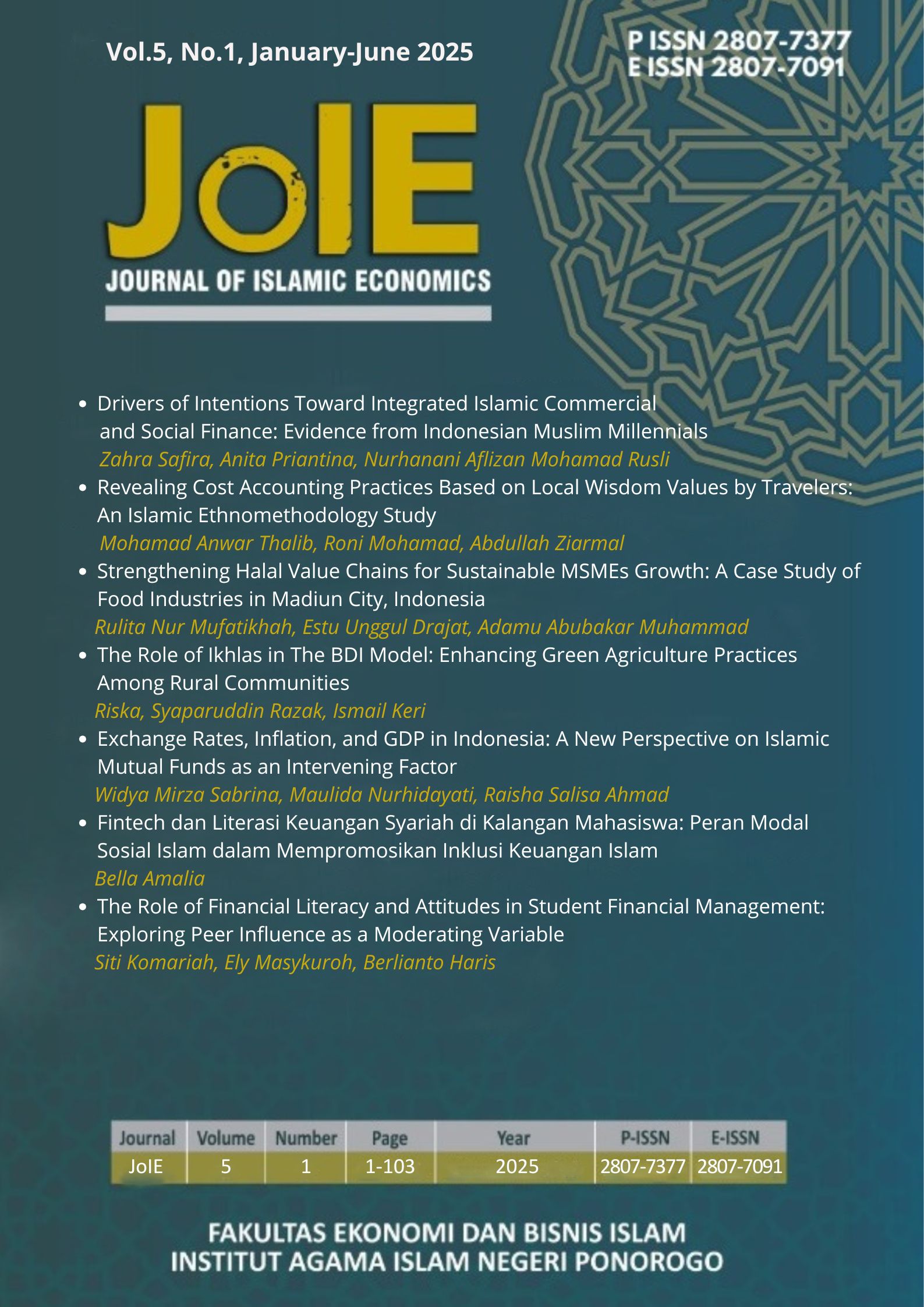Revealing Cost Accounting Practices Based on Local Wisdom Values by Travelers: An Islamic Ethnomethodology Study
DOI:
https://doi.org/10.21154/joie.v5i1.10524Keywords:
Cost accounting, local wisdom, Islamic ethnomethodology, barakah, eya dila pito-pito’oAbstract
Introduction: This study explores cost accounting practices based on local wisdom values among travelers from Gorontalo who undertake pilgrimages to Mecca by bicycle. It highlights how financial management in this context is not merely technical but deeply intertwined with cultural and religious values, especially when resources are limited. Research Methods: The study adopts an Islamic paradigm and employs an Islamic ethnomethodology approach. It follows a qualitative method using five stages of analysis: charity, knowledge, faith, revelation-based information, and courtesy, enabling a holistic understanding of financial behavior. Results: The findings show that travelers plan their expenses simply, covering essentials such as food, equipment, and charitable donations. Their cost accounting practices reflect the concept of barakah (blessings), rooted in Islamic teachings and local wisdom. This is exemplified by the Gorontalo expression eya dila pito-pito’o, meaning “Allah does not close His eyes.” Conclusion: Cost accounting practices among these travelers go beyond financial calculations; they are embedded in faith, ethics, and culture. This study suggests that accounting can be viewed as a spiritual and moral practice that fosters trust, sustainability, and a sense of divine connection.
Downloads
Published
Issue
Section
License
Copyright (c) 2025 Mohamad Anwar Thalib, Roni Mohamad, Abdullah Ziarmal

This work is licensed under a Creative Commons Attribution 4.0 International License.
JoIE: Journal of Islamic Economics allows the author(s) to hold the copyright without restrictions and allow the author(s) to retain publishing rights without restrictions, also the owner of the commercial rights to the article is the author.


















